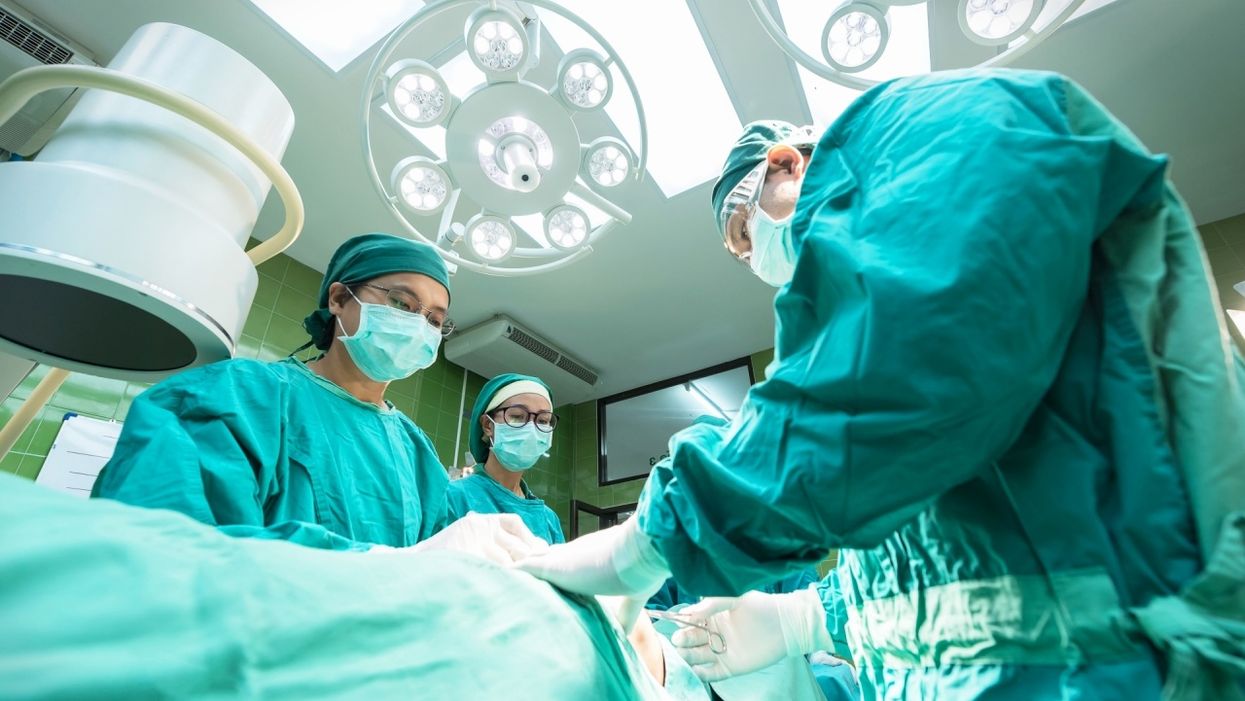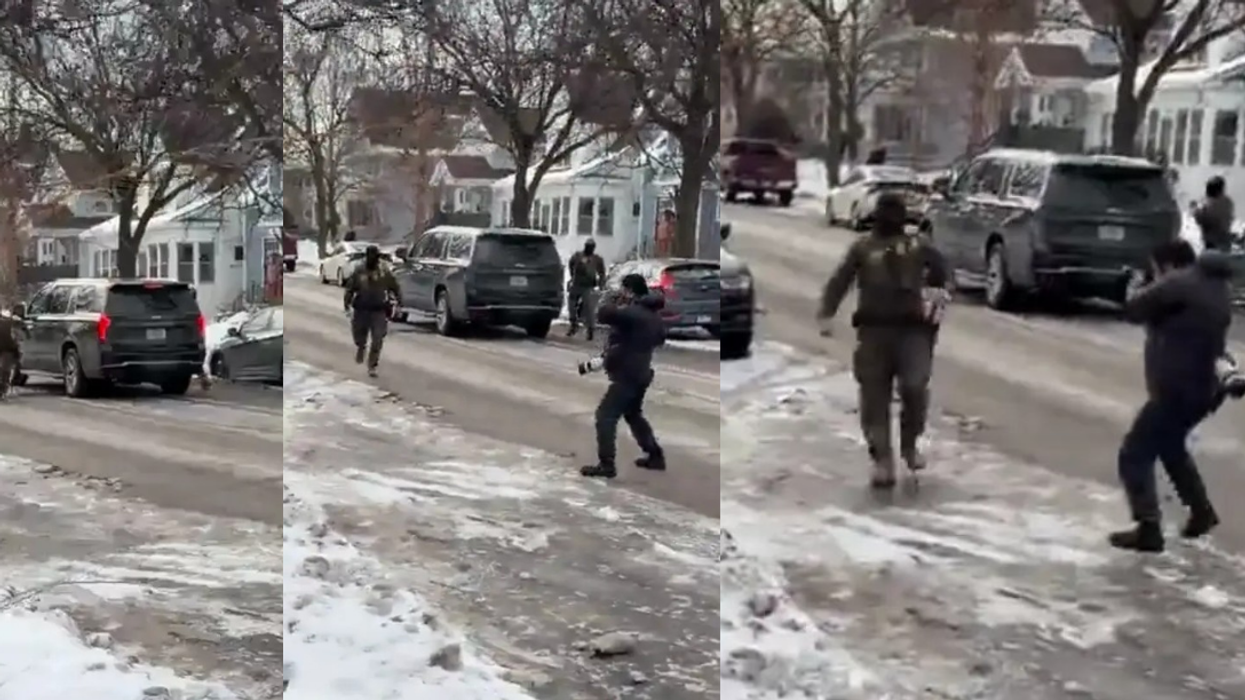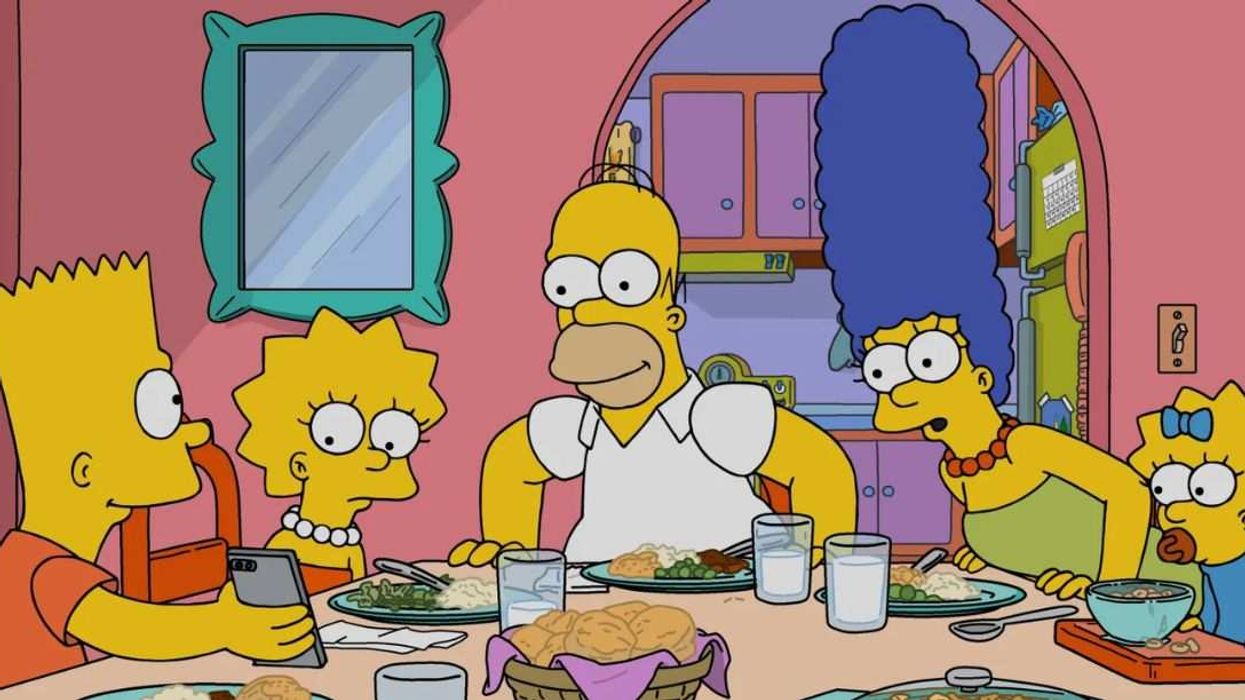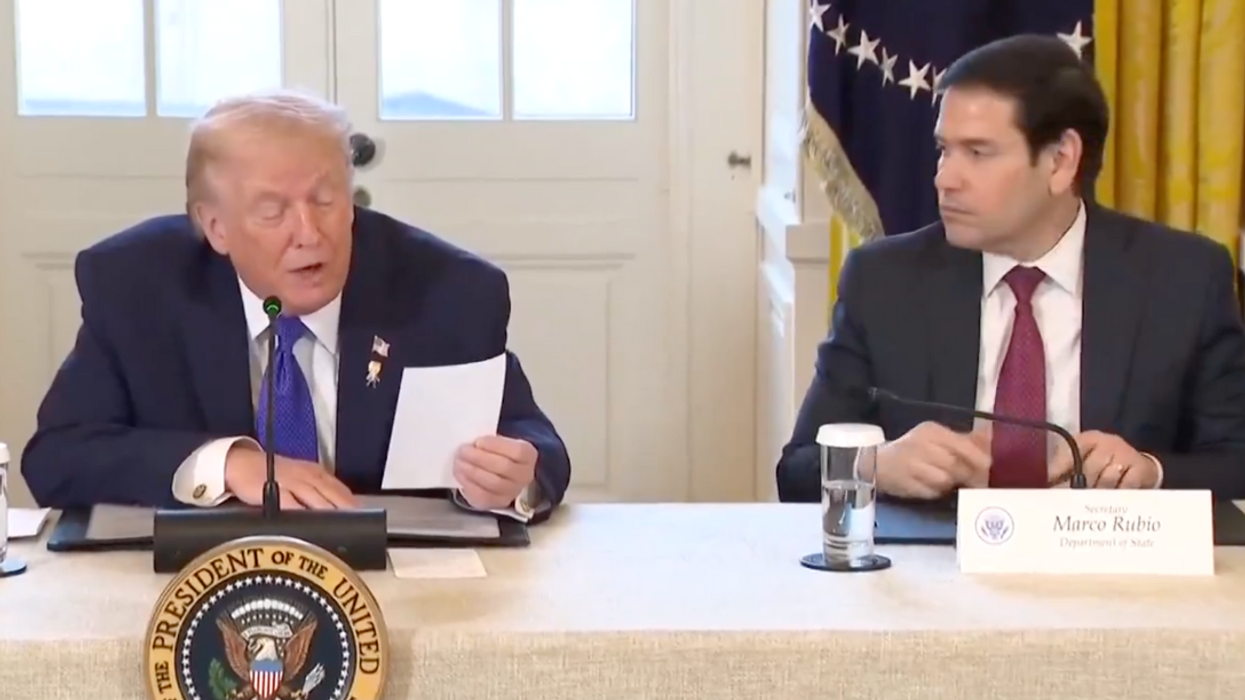Slicing someone open and fixing their insides takes some intense concentration and planning. These surgeons reveal what it really takes to pull off a big procedure.
u/TheNerdymax asks:
Surgeons of reddit that do complex surgical procedures which take 8+ hours, how do you deal with things like lunch, breaks, and restroom runs when doing a surgery?
It is well thought out
 Giphy
GiphyThere are several ways surgeons deal with this. Before they scrub in, they have already mentally thought out their basic timeline in these really long cases. So, how much fluid, caffeine, food and type of food gets planned.
Coffee and pee break
I'm a liver transplant surgeon. I do more living donor than deceased donor transplants. They take longer, typically 8 to 12 hours depending on the complexity.
In most cases, there is a break at the point when the recipient liver is ready to come out but the donor liver is not. There is time for a coffee and a pee.
The extensive planning
Well, I had a 14+ hour brain surgery a couple years ago. It was supposed to be less than 8. I was having an electronic pacemaker type of device installed in there to help control my epilepsy. My neurologist and neurosurgeon had spent more than a month planning exactly where each wire and screw was going to go. No time for breaks.
Nap time is crucial
Level 1 trauma ICU nurse here. One of the longer surgeries for my unit was 23hrs on the table. I asked my cardiac surgeon how they are able to go for so long. He told me he started the emergent case when it arrived and at the 12hr mark relief team was in place to come in and take over. He stayed in the OR till the 16hr mark napped 4hrs then came back in.
It takes a village
 Giphy
GiphyAs someone who has worked in an OR here's what happens. They break scrub if they really have to piss. In large cases there are usually multiple surgeons to include residents, fellows, med students and interns.
When you are focused food is not an obstacle
It's not that hard to go that long without food or a break when you are that focused on something.
That being said, most cases aren't that long and if they are, it's ok to break scrub to eat/drink/bathroom/breastfeeding surgeon moms will go pump
Everything before hand
Hey. I'm a hand surgeon. For longer procedures you typically try to take care of everything beforehand. Eat, use the bathroom, make sure everything is good to go. The anesthesiologist would be in charge if I left the room, though.
Technicalities of "scrubbing out"
Trained in pediatric CV surgery. Many long cases. The surgeons and ancillary staff would scrub out. The lead surgeon would usually only take 1 break during a long case. (usually multiple surgeons in the same case) You will never see the surgeon and the anesthesiologist taking a break at the same time though. There always has to be an MD/DO present in the O.R.
Tag team surgeons
It's rarely a single surgeon, that's the simple answer
Especially in complex operations, there will always be a team of surgeons (often, there will be a trainee), and they will switch in and out based on the phase of the surgery.
The pros know, just do it!
 Giphy
GiphyI am a General Surgeon. You just do it. 12 - 15 hour cases are common. Some of these answers are ridiculous.
The diet Dr. Pepper gets them through
I'm a medical student, but during my surgery rotation, I worked on the hepatobiliary/transplant team which are notorious for long surgeries. There's often one attending physician, 1-3 residents at different levels of training, and a medical student for these long surgeries. I was in a Whipple procedure (very, very long), and at hour 7, the chief resident dismissed me and another resident to go to lunch, and then we came back after eating and peeing. The attending would pop in and out between this surgery and another one he was overseeing. The chief resident didn't take a single break for the entire 10 hours. Surgeons are weird, and they never pee, and they live on Uncrustable sandwiches and diet Dr. Pepper.
If it's not over, you keep going
I have a funny story about this. Surgery was my first clinical rotation during medical school. My first case was a very complicated neck cancer which required General Surgery, Vascular, and Plastics to remove a tumor and replace the patient's esophagus with part of his intestine. We started around 8:30, and by 11:30, I was thinking about lunch, wondering where we would go eat whenever we decided to break. By 12:30, I was getting kind of hungry, hoping we would break soon. At 1:30 I was thinking, "Surely, we have to break soon", and by 2:30 the realization hit me, "Gosh, I guess these guys just don't break for lunch, f*** me." 20 years later it seems obvious to me that if the case ain't done, you keep going until it is. You can scrub out to go pee if you have to, but in my specialty, if the case is going on that long, something's not right and you're so focused on fixing what's wrong that food and water don't even cross your mind.
Everything must be considered
In my experience, needing to blow your nose is a far bigger issue for everyone than hunger or needing to pee. Imagine spending five hours sniffing and feeling a drip on the end of your nose.
You do what you have to do
I've been a surgical nurse for years and I've been in my fair share of 12+ hour cases. Surgeries that are this complicated quite frequently involve more than one surgeon and their assistant(s), usually a PA or NP. A lot of the time they will tag each other in/out. Some of the longest cases I circulated were cancer surgeries that involved immediate first phase reconstruction, so you'd potentially have a cancer doc and a plastics doc, sometimes a neurosurgeon, etc. Each surgeon gets their turn, so there's opportunities for breaks. And in some cases, they just do what they have to do.
Concentration makes time fly
 Giphy
GiphyI'm a resident in a Department for neurosurgery. Our surgeries can last very long. If you are the surgeon time will fly because you are focused and concentrated. If you are the assistent it is sometimes very hard to stay concentrated and awake. Most of the time we use the Microscope during Brain surgery. Standing for Hours and looking in the microscope while trying to stay concentrated till the performing surgent needs your assistence can be brutally hard.
Break after 8 hours
6-8 hours are longer cases but I wouldn't typically plan to take a break during that. Time does go very fast when you are doing the operating. On OR days I routinely go most days without eating until I'm done with everything for the day and can sit down and enjoy it.
It's all about strategy
I frequently do long operations for complex reconstructions and time sort of passes without knowing. I typically eat a big breakfast but limit liquids other than standard small coffee.
When the surgery is a marathon and then some
My aunt had a recurring brain tumor. Skipping excessive detail, she was 22 years past her 3rd brain surgery when it was discovered that it had returned. Her 4th brain surgery took 10-hours. I met the surgeon afterward. He looked like he had just run an Iron Man.
When you are in the zone
I'm a veterinarian, and I do surgery a few times a month (I work with laboratory animals). For me the excitement and focus while doing surgery kind of shuts off everything else.
A sponge means break time
 Giphy
GiphyMedical student here, have been in 6+ hour procedures before. It's dependent on the procedure, but in our case we hit a roadblock that required another surgeon to come and evaluate. We had 2 surgeons, so while waiting for the consult, one surgeon along with me and a resident were told to go take a quick break. They just covered the opened area with sponges (they're more like towels but are called sponges), and we broke scrub to go out quick.
It takes training
I'm a cardiac surgeon. Routinely do operations in the 4-12hr range. I trained as a resident for 10 years after medical school to even start to practice independently. When you are a resident/fellow in a rigorous surgical field, you train your body to get used to those procedures and standing for that long.
Some surgeons are just wimps
Surgical trainee here- I've only scrubbed in 8 hour+ a couple times- the most recent being last month (simultaneous pancreas kidney transplant), where we started at 2pm and ended at 10.30pm.
I'm pretty young (26) so it's no big deal for me, but I do respect the fact that my bosses (40-60) manage to plow through too. Throughout medical school + training you just get used to it, no scratching itches, no toilet breaks, delayed meals.
Personally I don't have lunch for physique reasons (intermittent fasting) and can not eat for more than 30+ hours and still function pretty well. This is not my medical opinion, but I think 3 meals a day is just a social construct, I don't think humans actually need to eat that regularly.
They just do whatever they want
'm a perfusionist, which means I run the cardiopulmonary bypass machine during heart surgery. Often times, nurses and physicians have people they can call to come relieve them for a moment while they relieve themselves. Surgeons and anesthesiologists have a lot of power/clout in the operating room and can hold up the procedure for a bio break, but if a non-physician tried that it wouldn't go over well.
deprivation and candy
Surgeon here. Two things can happen, one, Im so focused on the procedure that I dont feel hungry until im done, and if I dont take liquids during the surgery usually I dont feel like I need to pee. Im talking about a 5 to 8 hr surgery. I try to go into long surgeries well fed. All this being said, Iv had to run to the bathroom for emergencies or felt a little weak for lack of food. They can put a candy in your mouth or something easy to eat, or you can just scrub out and then scrub in again. There are usually 2 to 3 surgeons scrubed in, and not every part of the surgery is critical, so there are moments where you can leave and your team can carry on for the time your out.
This is extreme
 Giphy
GiphyMy old roommate is a surgical tech.
He has told me that some surgeons have catheterized for long surgeries. Don't know how common that is, but it happens.
There is a prize for self control
Surgical subspeciality resident here - you get good at holding it and planing your hydration accordingly. I've gone 11-12 hours without pissing/drinking/eating. Food tastes delicious afterwards.
Short mental breaks are important
Not that big a deal honestly. Over the years of training you just get used to it. Usually I use the bathroom before I start a case. Very rarely during an unusually long case I may need a break for water or a snack. A break can help with mental fatigue as well. Usually I can find a stable minute to sneak out for 5 minutes if I need it.
I'm never hungry while I operate but can be starving after I'm done.
Time stops when you have a life in your hands
 Giphy
GiphyI assist in surgery. Honestly you forget about time.. A 8 hour surgery might seem long when you think about it but in reality you don't notice time passing.








 @sabrinavonb/TikTok
@sabrinavonb/TikTok @sabrinavonb/TikTok
@sabrinavonb/TikTok @sabrinavonb/TikTok
@sabrinavonb/TikTok @sabrinavonb/TikTok
@sabrinavonb/TikTok @sabrinavonb/TikTok
@sabrinavonb/TikTok @sabrinavonb/TikTok
@sabrinavonb/TikTok @sabrinavonb/TikTok
@sabrinavonb/TikTok @sabrinavonb/TikTok
@sabrinavonb/TikTok @sabrinavonb/TikTok
@sabrinavonb/TikTok @sabrinavonb/TikTok
@sabrinavonb/TikTok






 @tismejackieg/TikTok
@tismejackieg/TikTok

 @tismejackieg/TikTok
@tismejackieg/TikTok @tismejackieg/TikTok
@tismejackieg/TikTok @tismejackieg/TikTok
@tismejackieg/TikTok @tismejackieg/TikTok
@tismejackieg/TikTok @tismejackieg/TikTok
@tismejackieg/TikTok @tismejackieg/TikTok
@tismejackieg/TikTok @tismejackieg/TikTok
@tismejackieg/TikTok @tismejackieg/TikTok
@tismejackieg/TikTok
 @tismejackieg/TikTok
@tismejackieg/TikTok @tismejackieg/TikTok
@tismejackieg/TikTok @tismejackieg/TikTok
@tismejackieg/TikTok


